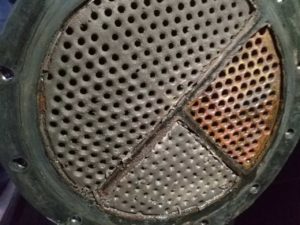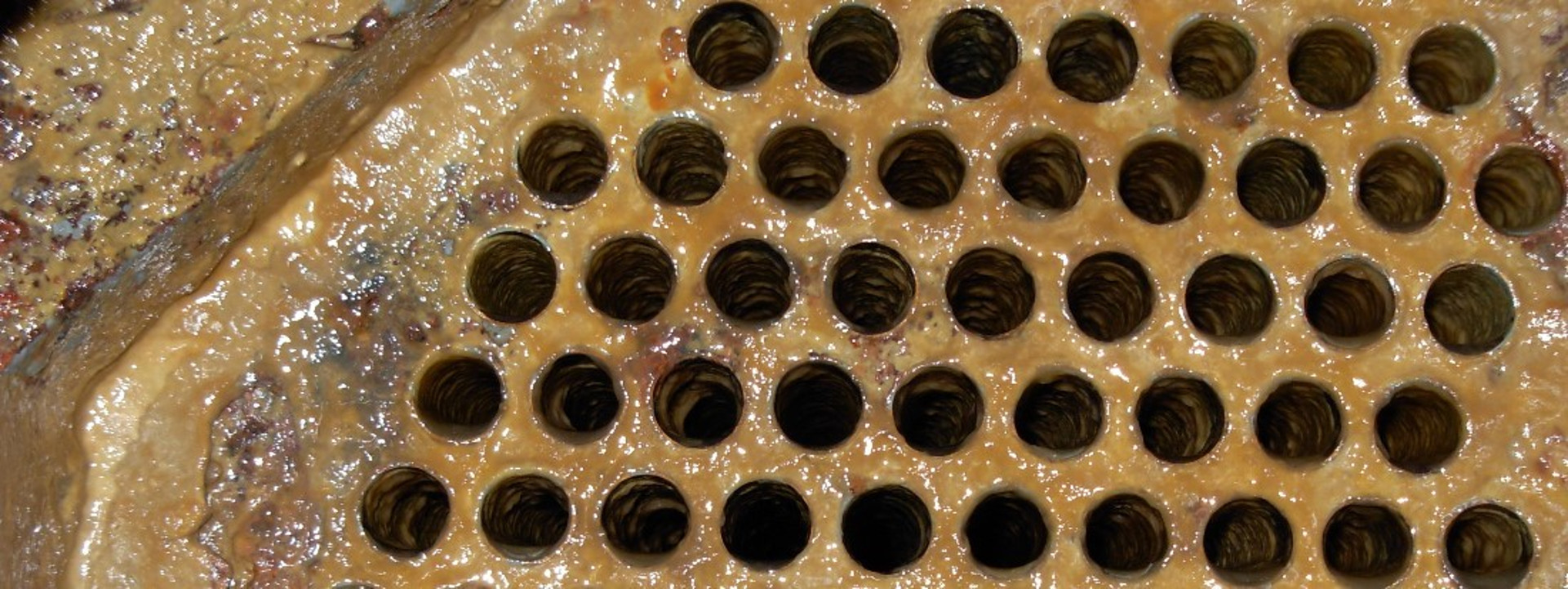In refineries, water is used mostly for cooling purposes. As there are a lot of refineries near the sea, also seawater is used as cooling water, either direct or indirect. Often the circumstances aren’t ideal, the temperatures which has to be cooled can be very high. Often the water system, including the cooling towers and heat exchangers have tremendous problems with scaling and fouling. The pipelines are several kilometers long with many branches and often hundreds of heat exchangers or processes to cool.
Apart from the water side of the heat exchanger also the hydrocarbon side is threatened by deposits. Cleaning is a constant issue on both sides as well as fighting corrosion.
Common Issues in the Heat Exchanger Cleaning
 Cleaning a heat exchanger is not easy. The production has to be stopped. The maintenance crew needs to dismantle the heat exchanger, before cleaning is possible. For loose deposits, hydro jetting is used. Where hard crusts have settled, the only chance to clean the pipe is the use of aggressive chemicals. When tubes are totally blocked, the maintenance crew has to drill through each tube.
Cleaning a heat exchanger is not easy. The production has to be stopped. The maintenance crew needs to dismantle the heat exchanger, before cleaning is possible. For loose deposits, hydro jetting is used. Where hard crusts have settled, the only chance to clean the pipe is the use of aggressive chemicals. When tubes are totally blocked, the maintenance crew has to drill through each tube.
All these common methods of cleaning heat exchanger or cleaning heat exchanger tubes have a direct influence on the lifetime of the heat exchanger. The acids are not only removing the scale or the fouling they are always affecting the metal as well. Drilling through a heat exchanger tube is not an easy task either, if not done in the proper way, there is a risk the tube will be broken during this drilling.
We have seen cases where the lifetime of heat exchangers, which have to be cleaned once a year, are only 3 years in total. This is raising the service and maintenance cost dramatic, and continuous replacement investments have been done.
Controlling deposits and corrosion in the cooling loop
For scaling and fouling, the Merus Technology is applicable for single standalone heat exchangers, one part of the cooling loop or the entire cooling system.
For corrosion and or micorbiological problems the whole cooling system has to be treated. Improvements can be seen on various factors. Fouling is reduced significantly, corrosion can be brought under control and of course limescale and deposits are reduced.
The result is fewer costs and effort for maintenance, better and stable performance of the cooling and fewer emergency shutdowns. Eventually, fewer chemicals are needed to treat the water, which provides both economical, as well as ecological benefits.
It is obvious, having control over the cooling system reduces the maintenance and service effort. Reducing the amount of chemicals used in such a cooling loop leads often to savings of several 100.000 USD a year.
Taking into consideration the lifetime of the heat exchanger, which might be used 10 years instead of only 5 years, the possible savings are even higher.

